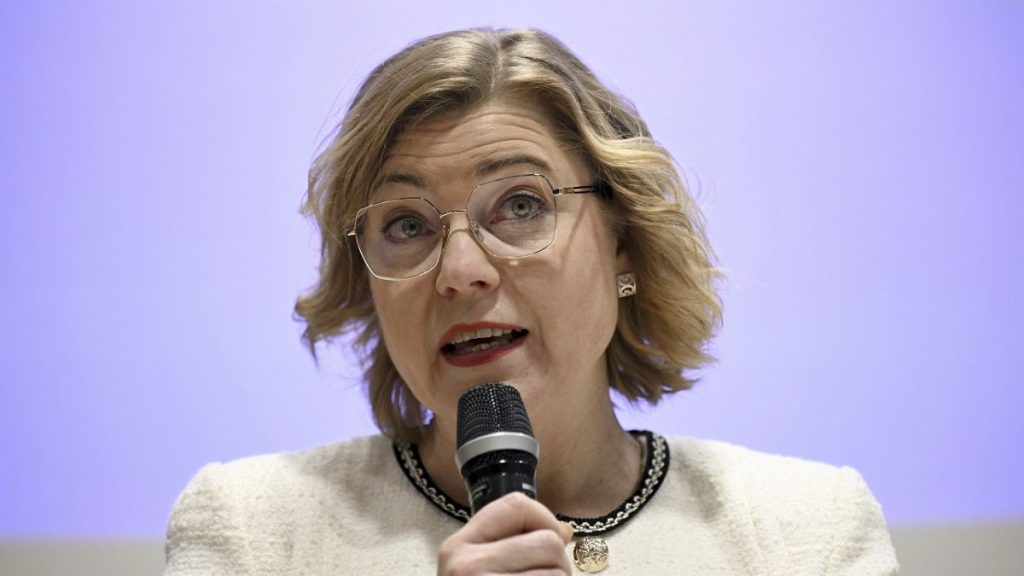In the first 100 days of her office, EU Technology Commissioner Henna Virkkunen has undertaken a range of meetings and discussions that highlight her agenda for digital regulation and technology advancement within the European Union. Following her confirmation last year, Virkkunen has set a course focused on simplifying regulations and fostering innovation while navigating the complexities of the digital landscape. This article examines her engagements with industry leaders, the discussions held, and the governmental initiatives introduced during this significant period.
| Article Subheadings |
|---|
| 1) Overview of Virkkunen’s Early Initiatives |
| 2) Highlights from Meetings with Industry Leaders |
| 3) Key Discussions and their Implications |
| 4) Countries Visited and Their Significance |
| 5) Looking Ahead: Future Endeavors and Expectations |
Overview of Virkkunen’s Early Initiatives
Since her appointment, Henna Virkkunen has emphasized the importance of simplifying existing regulations for the tech industry. Shortly after taking office, she was called before the European Parliament to address concerns regarding the enforcement of the Digital Services Act (DSA). Lawmakers urged her to take stricter action against tech giants for alleged non-compliance with the DSA, bringing the initial challenges of her tenure to light. Her early initiatives underscore a commitment to digital innovation and regulatory reform, aiming to position Europe as a leader in the global technology landscape.
Highlights from Meetings with Industry Leaders
Within her first months, Virkkunen has actively engaged with industry leaders to discuss pressing issues affecting the technology sector. She conducted a total of 29 meetings with representatives from various companies, showcasing a focus on collaboration and open dialogue. Notably, seven of these meetings coincided with the Munich Security Conference, where she met with influential figures from renowned automotive and tech companies like BMW, Microsoft, and IBM to foster global cooperation in technology. Such collaborations indicate a strategic approach to mitigating dependence on critical resources, particularly semiconductors, as discussed with Infineon.
Key Discussions and their Implications
Many discussions centered around the future of artificial intelligence (AI), as Virkkunen committed to making Europe the “AI Continent.” This ambition is mirrored in her action plan slated for release in April, which outlines steps for achieving this goal. Moreover, there is a significant financial proposition from the EU to mobilize approximately €200 billion for establishing AI factories across member states, indicating the EU’s commitment to innovation and technological advancement.
However, an intriguing aspect of these meetings is that while most focused on the tech agenda, none specifically addressed cybersecurity, a critical area often flagged as a priority by the Commission. This oversight raises questions about the preparedness of the EU to handle increasing cybersecurity threats, as the complex and ever-evolving nature of digital threats requires dedicated attention.
Countries Visited and Their Significance
Since her appointment, Virkkunen has visited nine countries, including Switzerland for the World Economic Forum in Davos and India for discussions related to trade and technology. Her travels included multiple returns to her native Finland, but interestingly, these trips did not involve meetings with industry representatives within her home country. This pattern highlights a potential opportunity for further engagement with local tech firms and stakeholders to strengthen the EU’s domestic tech landscape.
Looking Ahead: Future Endeavors and Expectations
As Virkkunen braves her initial challenges, the upcoming proposals such as the Digital Fairness Act and the Digital Networks Act are eagerly anticipated. These initiatives are expected to outline the framework for digital policies that promote fairness and competition across platforms. Additionally, her recent presentation of an action plan for hospitals and a security plan for submarine cables is indicative of a broader focus on ensuring the robustness of essential infrastructures in the telecom sector.
With these developments in mind, Virkkunen’s next steps will be pivotal—both in solidifying her position within the EU and championing the continent’s ambitions in technology and digital governance. The outcomes of her strategic engagements and proposed legislations will significantly shape the EU’s future landscape.
| No. | Key Points |
|---|---|
| 1 | Henna Virkkunen has focused on simplifying existing regulations and enhancing digital innovation in her early tenure. |
| 2 | She has conducted 29 meetings with industry leaders, discussing cooperation and strategies for tech development. |
| 3 | Key discussions include Europe positioning itself as a leader in artificial intelligence with significant financial backing for AI factories. |
| 4 | Her travels included visits to nine countries, emphasizing the importance of international collaboration in technology. |
| 5 | Upcoming proposals like the Digital Fairness Act and Digital Networks Act will be crucial for establishing a fair digital market. |
Summary
In her first 100 days, EU Commissioner Henna Virkkunen has not shied away from addressing pressing issues within the technology sector while fostering collaborative engagements with industry leaders. Her focus on simplifying regulations, enhancing AI development, and addressing infrastructure security reflects the EU’s commitment to embracing digital transformation. As she continues her tenure, the initiatives being laid out during this early phase will likely have far-reaching implications for the technological landscape in Europe and beyond.
Frequently Asked Questions
Question: What are the main focuses of Henna Virkkunen’s agenda as Technology Commissioner?
Henna Virkkunen’s agenda focuses on simplifying regulations, enhancing digital innovation, and positioning Europe as a leader in artificial intelligence.
Question: How many countries has Virkkunen visited since her appointment, and why were these visits significant?
Virkkunen has visited nine countries since her appointment, including participation in the World Economic Forum, emphasizing the EU’s commitment to international collaboration.
Question: What financial investments has the EU proposed for advancing AI technologies?
The EU has proposed to mobilize approximately €200 billion for establishing AI factories across member states, supporting its goal of becoming a leader in AI.


